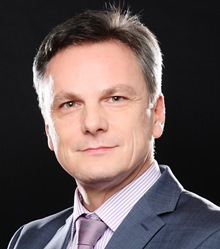New Educational Paradigms in Telecommunications
Special session organizers

Branko Mikac, University of Zagreb, Faculty of Electrical Engineering and Computing, Zagreb, Croatia

Slaviša Aleksić, Hochschule für Technik, Wirtschaft und Kultur (HTWK), Fakultät Digitale Transformation, Leipzig, Germany
www.htwk-leipzig.de
Objectives
The objective of the session is to bring people together who can share experience in different aspects of university education in telecommunications: in creating, implementing and carrying out curricula; organizing academia-industry collaboration in advanced telecommunication products; organizing joint study programs on international level; organizing student and staff exchange within international exchange programs; in development and application of software tools that enable better understanding and make easier learning about complex telecommunication system and network.
Topics
Contributions to the session are preferred to be in the following area, but not limited only to them:
- Development of curricula for the new age
- Joint study programs, experiences on international collaboration
- Teaching innovations and entrepreneurship in ICT
- Industry-academia collaboration, involving students in R&D projects
- Experiences on students’ exchanges: presentation of good practice
- Network and system simulation tools in university education: principles and applications
- Advanced educational tools for telecommunications in general, and specifically for optical networks and systems
Paper Submission
Papers submitted to special session must not have been published, submitted, or accepted for publication elsewhere. IEEE policy regarding plagiarism and duplicate submission/publication will be strictly enforced.
Papers should be submitted electronically before submission deadline, via EDAS (http://edas.info). Paper submissions should follow the IEEE double-column format for conferences (templates available here). A maximum of (8) pages, including all figures and references, are allowed for each paper. Submitted papers will undergo a peer review process, coordinated by the Program Committee. Submission of a paper implies that, should the paper be accepted, at least one of the authors must register and attend the conference to present the work.
Important Dates
April 4, 2021April 15, 2021: Full Papers, DueMay 7, 2021May 12, 2021: Notification of Acceptance/RejectionMay 21, 2021May 26, 2021: Final, Camera Ready Papers, Due